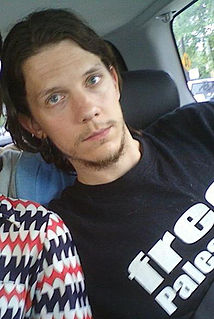A Quote by Peter Drucker
Balance Sheets are meaningless. Our accounting systems are still based on the assumption that 80% of costs are manual labor.
Related Quotes
We have no paupers ... The great mass of our [United States] population is of laborers; our rich, who can live without labor, either manual or professional, being few, and of moderate wealth. Most of the laboring class possess property, cultivate their own lands, have families, and from the demand for their labor are enabled to exact from the rich and the competent such prices as enable them to be fed abundantly, clothed above mere decency, to labor moderately and raise their families. ... Can any condition of society be more desirable than this?
A basic assumption shapes most Americans’ mindset about labor: the belief that the death of unions isn’t my problem because I’m not in a union. That assumption is wrong. Even if you aren’t a member, your pay is influenced by the strength or weakness of organized labor. The presence of unions sets off a wage race to the top. Their absence sets off a race to the bottom.
With more than 80 percent of Americans living in metropolitan areas, there are still demagogues who want to run down the idea of multiculturalism, of urbanity, being the only future we have. We either live or die based on how we live in cities, and our society is either going to be great or not based on how we perform as creatures of the city.



































